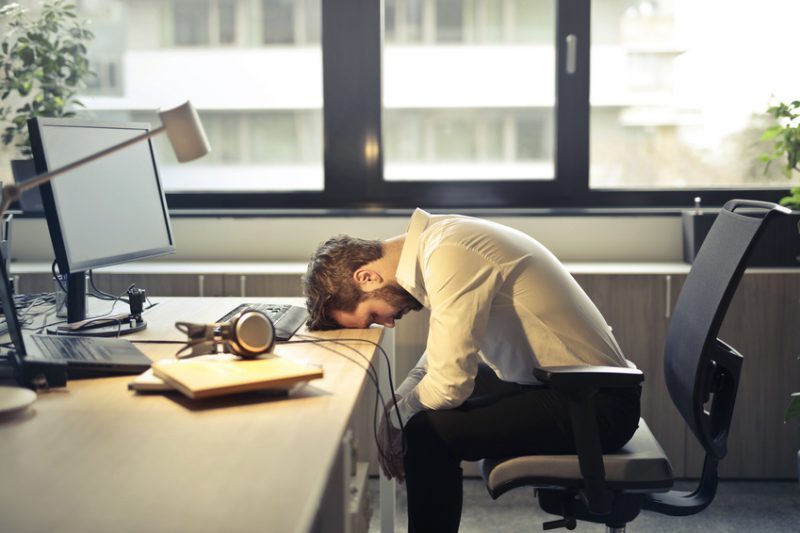Are you just snoring, or is it a sign of sleep apnea? The latter may put you at risk for more than just a lousy night’s sleep.
Almost half of us snore while we sleep at night – at least occasionally – and 25 percent are habitual snorers. Beyond the noise (and frustration of sleep partners when the sound reaches chainsaw levels…), there may be something else your snoring is trying to tell you.
Obstructive sleep apnea is a more serious condition, and snoring is its most common symptom. People with sleep apnea have regular episodes where they stop breathing over the course of the night. Associated with these breathing events, oxygen levels decrease and it puts strain on the body.
The lack of oxygen and restorative sleep from obstructive sleep apnea can be detrimental to your health, according to Noah S. Siegel, M.D., an ear, nose and throat specialist at Mass. Eye and Ear, who holds a second board certification in Sleep Medicine.
So, what can obstructive sleep apnea do to your health?
It Makes You Very Tired.

People with obstructive sleep apnea are often getting adequate sleep, or enough hours in bed at night, but that sleep is not actually restorative. “The mechanism there is that, if you don’t breathe well, you don’t cycle through all the stages of sleep,” Dr. Siegel explains. “The breathing causes fragmented, poor quality sleep.”
If you’re not restoring your body nightly with the rest it needs, the drowsiness can impact just about everything you do during the day. In particular, drowsy driving can be extremely dangerous.
It Impairs Mood and Emotional Ability.
With the drowsiness often comes feelings of depressed mood and poor emotional ability. “Imagine every day not being able to get through the day because you didn’t sleep well,” Dr. Siegel says. “People with OSA are simply not thriving. Many are just trying to get through the day and get through life.”
It Makes You Less Productive.
Unable to recharge their batteries night after night, many people with sleep apnea find it very difficult to concentrate.
It Puts Stress on Your Heart.

Perhaps the most concerning issue with untreated sleep apnea is that it stresses your cardiovascular system. This can put you at risk for high blood pressure, irregular heart rhythms, heart attack and stroke.
It Affects Memory and Brain Health.
Emerging data suggests that there is an association between cognitive decline (memory loss) and people with obstructive sleep apnea. “If one is not cycling through all the stages of sleep and one’s brain is not receiving adequate oxygen, an individual is not fully realizing the neurologic benefits of restorative sleep,” Dr. Siegel said. “Over time, this can be associated with cognitive decline.”
The Takeaway
It’s important to remember that not everyone who snores has obstructive sleep apnea, and many people are “simple snorers” without significant health risks.
But if you’re snoring habitually, it may be a good idea to see a doctor to investigate further.
“Anyone who has habitual snoring should get it checked out by an ENT – particularly if they wake up gasping for air, or if they never seem to be well rested,” Dr. Siegel said.
About Our Expert
 Noah S. Siegel, M.D., is Medical Director of Otolaryngology at Mass. Eye and Ear, Longwood. He is board-certified in both otolaryngology–head and neck surgery and sleep medicine. To make an appointment with Dr. Siegel, request one online or call 617-936-6160.
Noah S. Siegel, M.D., is Medical Director of Otolaryngology at Mass. Eye and Ear, Longwood. He is board-certified in both otolaryngology–head and neck surgery and sleep medicine. To make an appointment with Dr. Siegel, request one online or call 617-936-6160.




Is there any solution for someone who snore but does not have sleep apnea?
Hi Diane, Depending on the underlying cause, there can be treatments for snoring. For those who’ve been told that they snore, sleep studies are highly recommended to ensure that the snoring is not a symptom of a more serious disorder. If no underlying cause is found, physicians usually recommend wearing nasal strips that help increase air pressure in the upper airway, or in some cases, certain mouth guards. For more information, see our website. Thank you for reading!
I was diagnosed with Sleep Apnea (obstructive & non obstructive) almost two years ago. I am compliant with my CPAP therapy, but I am still tired most days. Why is this?
Hi Gretchen, thanks for reading and your comment. Patients still experiencing issues with CPAP should consider a follow-up appointment with their doctor, who may be able to increase the airway pressure or evaluate an alternate solution.